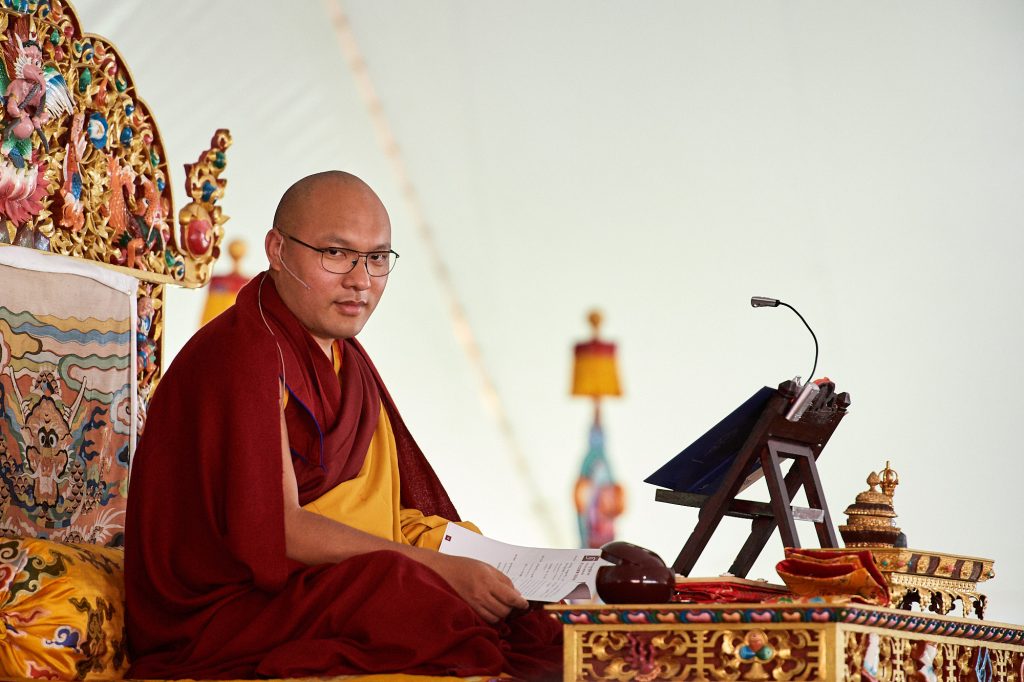Nothing is permanent, so everything is precious. Here’s a selection of some happenings—fleeting or otherwise—in the Buddhist world this week.
Helping Pets Pass On in Thailand
Buddhists in Thailand have been cremating pets in order to make merit and aid the critters in the afterlife, the New York Times reports. Bangkok is a dangerous place for pets, and the government does little to spay or neuter strays, so animal lovers and monks have taken it upon themselves to hold funeral rites for dead cats and dogs. Pet owners will also bring their furry friends down to a local temple to help them reincarnate. Local Watcharasit Siripaisarnpipat told the Times that she had brought her Siberian Husky, Friendly, to be cremated at the Krathum Suea Pla Wat [temple] in Bangkok. “She enjoyed a good life,” Watcharasit told the newspaper. “She deserves a good afterlife, too.”
Cambodian Monks Divided Over Election
The Cambodian general election held this past Sunday revealed a deep divide in the country’s 60,000 Buddhist monks, reports Agence France-Presse. The ruling party claimed victory in a landslide after banning the opposition party, and the election was swiftly condemned by the international community and critiqued by news outlets. The ruling Cambodian People’s Party has relied on support from the clergy, powerful allies in a country where Buddhism is intertwined with daily life, but some monks support the opposition Cambodia National Rescue Party and skipped election day to protest what they see as a “one-horse race.”
The Karmapa Will Return to India
Ogyen Trinley Dorje, one of two claimants to the title of the 17th Karmapa, plans to return to India, he told Radio Free Asia. The contested head of the Karma Kagyu lineage of Tibetan Buddhism has been living in America because of health issues for about a year. The Karmapa said this week that medical tests have turned up no major problems and that he’ll be moving back to India—possibly in November when other Tibetan Buddhist leaders will be meeting in Dharamsala. He said that His Holiness the 14th Dalai Lama will be expecting him at the event, and “Therefore, I must attend.”
Korean Buddhist Leader Resigns over Corruption Allegations
The head of Jogye Order of Korean Buddhism has announced his resignation after apologizing for alleged corruption, the Yonhap News Agency reported. Ven. Seoljeong, the executive chief of the largest Buddhist group in South Korea, will step down on Aug. 16 over a slew of allegations that he faked his credentials, had a daughter after breaking a vow of celibacy, and embezzled funds. Seoljeong had previously apologized for the scandal while denying that the allegations were true. Meanwhile, a senior monk named Seoljo was hospitalized at the end of a 41-day hunger strike where he had been calling for the leader’s resignation outside the organizations Seoul headquarters, Yonhap reports.
China Labels Middle Way Groups “Organized Crime” in Tibet
China has cracked down on Tibetan social groups by categorizing them as “organized crime,” according to a new report from Human Rights Watch. The law, which was enacted in February, includes any group that takes part in “instilling in the masses reactionary ideas such as the ‘middle way’” or that supports His Holiness the 14th Dalai Lama, the report states. “Now authorities can prosecute people for simply gathering for any purpose not directly mandated or approved by the state,” Sophie Richardson, China director at Human Rights Watch said in a press release.
Chinese Abbot Accused of Sexually Abusing Nuns
Abbot Xuecheng, a high-ranking Chinese monk, has been accused of sexually harassing nuns and pressuring them to have sex with him, the BBC reports. Xuecheng, who is the head of the Buddhist Association of China and abbot at the Longquan temple in Beijing, has denied the allegations. A report sent to the Chinese government and written by two Longquan monks accuses Xuecheng of using “mind-control” to convince nuns that sex was part of their Buddhist studies. One of the nuns also filed a police reports saying that the abbot sexually assaulted her.
Koyasan Tourists Test Monk’s Equanimity
A monk living at a temple in the holy mountain town of Koyasan, Japan, had some harsh words for finicky tourists who complained about their accommodations. Temple stays at the Shingon Buddhist site have become popular with international tourists since it was declared a UNESCO heritage site in 2004. But some visitors have left reviews on booking.com complaining that the food was too basic and that the rooms were uncomfortable. Monk Daniel Kimura shot back that the temples were a “‘place of training,” adding, “Just because you are a Westerner doesn’t mean you are going to be treated specially . . . If you are that interested in a monk’s life then you should shave your head and be one.” In one instance, he responded that the food was “Japanese monastic cuisine you uneducated fuck.” In an interview with the Guardian, Kimura apologized for the foul language but stood by his condemnation of “arrogant” tourists. Kimura, 30, who was born in America but has lived in Japan for 15 years, said, “I try to explain that you can’t expect luxury when you come to a monastic setting and of course it’s going to be kind of barebones, but it’s deliberately like that.”
Monk at Buddhist temple lodgings on Japan’s Mt. Koya is 100% done with your tourist crap pic.twitter.com/W6SZ1Sktwk
— Melissa Martin (@DoubleEmMartin) July 23, 2018
Spirit Rock in 360 Degrees
If you don’t have the time or money for a meditation retreat, you can now take a digital journey to a peaceful place. The New York Times has produced a series of 360-degree videos in serene places, including the Spirit Rock Meditation Center in San Geronimo Valley. Other options include a redwood forest and a rocky coast in Northern California.
Thank you for subscribing to Tricycle! As a nonprofit, we depend on readers like you to keep Buddhist teachings and practices widely available.
